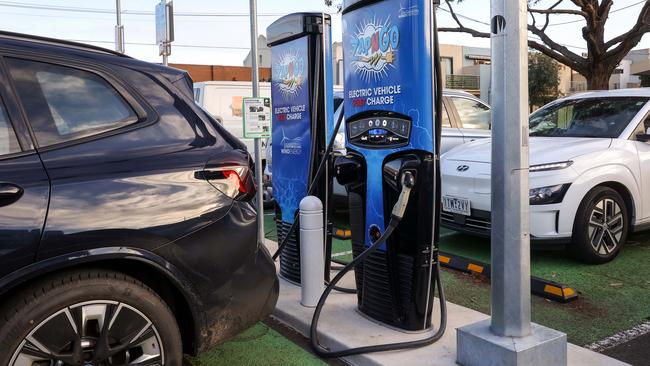Slow EV uptake a chance to get it right: Energy Security Board
Australia’s slow adoption of electric vehicles is an opportunity to learn from other countries about how best to incorporate them into the electricity grid, the Energy Security Board says.

Australia’s slow adoption of electric vehicles is an opportunity to learn from other countries about how best to incorporate them into the electricity grid, the Energy Security Board says.
The ESB – a body including the heads of the Australian Energy Market Operator, the Australian Energy Regulator and the Australian Energy Market Commission – was late last year tasked with coming up with a plan on the rollout of EVs and their batteries.
“Standards to support the effective integration of charging devices for electric vehicles were identified as a priority activity as part of delivering this plan,” its issues paper reads.
“Although EV uptake in Australia has been slower than in offshore markets, with total EV sales of 20,665 over 2021 in Australia, this represents a threefold increase from the 6900 EVs sold in 2020, with growth continuing despite challenging supply chain issues. The fact that EV uptake to date in Australia lags other markets represents an opportunity to learn from international experience and adapt what might work best in an Australian context.’’
The issues paper calls for feedback on technical issues such as the standardisation and interoperability of smart charging technology, the ability for the remote management of batteries connected to the grid, and pricing issues.
The paper says there were 291 fast-charging sites around Australia as at January this year, up from 157 in August 2020. The highest number of chargers is in NSW with 93, followed by 67 in Victoria and 63 in Queensland.
For its part, fuel provider Ampol said it had so far committed to rolling out 120 fast-charging sites of its own nationally by October 2023.
“Building this enabling infrastructure will alleviate range anxiety and provide fleet owners with the confidence that their employees can recharge wherever and whenever they need,’’ Ampol managing director Matt Halliday said. “Moreover, fleet owners want to ensure the seamless experience of refuelling, billing and account management that currently exists in traditional fuels can translate to a BEV (battery electric vehicle) environment.’’
Over the longer term, the ASX-listed Ampol intends to offer an at-home charging capacity.
Submissions in response to the ESB’s issues paper will be accepted until August 19.





To join the conversation, please log in. Don't have an account? Register
Join the conversation, you are commenting as Logout